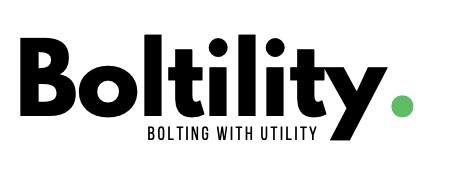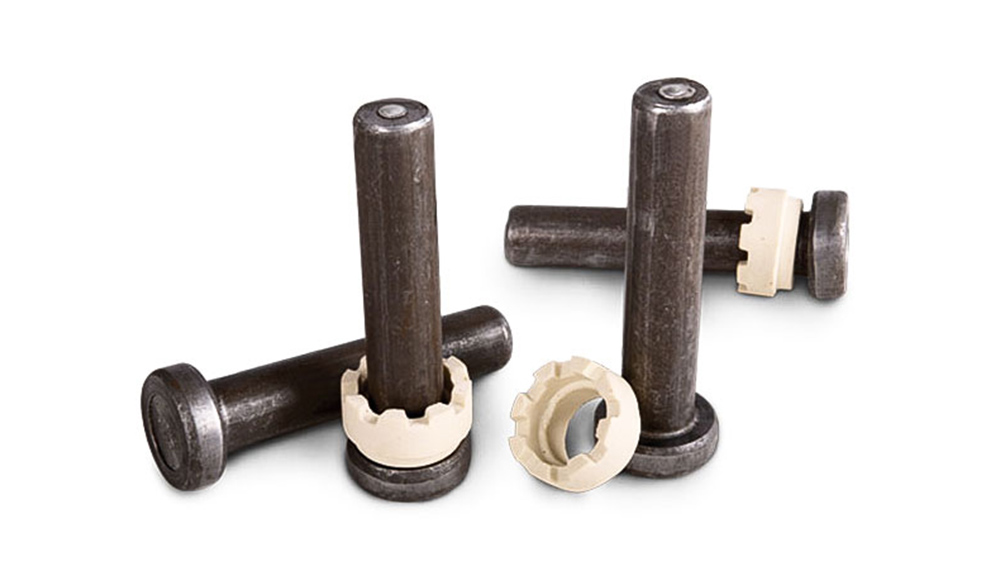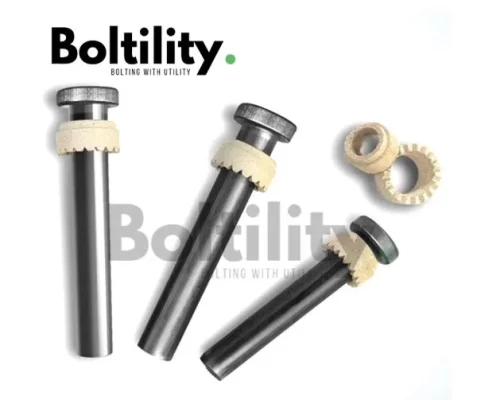Shear connector are vital components in modern construction, improving strength and stability by creating composite action between concrete and steel. Learn how Boltility’s premium shear connectors ensure optimal performance in your projects!
What is a Shear Connector?
A shear connector is a device used to join concrete slabs to steel beams, ensuring they work together as a single composite structure. By facilitating the transfer of shear forces between materials, shear connectors enhance the structural integrity and load-bearing capacity of buildings and bridges.
Typically, shear connectors are used in composite construction, where the combined properties of steel and concrete deliver superior strength, efficiency, and durability.
The Role of Shear Connector in Construction
Shear connectors perform three key functions:
1. Enhancing Structural Integrity
They create a strong bond between concrete and steel, ensuring the materials act together to resist shear forces. This improves the overall strength and stability of the structure.
2. Improving Load Distribution
By distributing loads evenly between concrete slabs and steel beams, shear connectors prevent localized stress and reduce the likelihood of structural failure.
3. Minimizing Material Requirements
Composite construction using shear connectors often requires less material, making projects more cost-effective and environmentally friendly.
Types of Shear Connector
1. Headed Stud Shear Connector
Widely used in construction, these connectors are welded to steel beams to provide a robust connection to concrete.
2. Channel Shear Connector
These are suitable for heavy-duty applications and allow for increased load-bearing capacity.
3. Perforated Shear Connector
These connectors are ideal for lightweight construction and deliver excellent shear resistance.
4. Bolt-On Shear Connector
Used where welding isn’t feasible, these connectors are mechanically fastened to steel components.
Facory Production Certified FPC BC-1 Class Material
Comply to BS EN ISO 13981 / AWS D 1. 1 / BS 5400 / BS 5950
Applications of Shear Connectors
Shear connectors are essential in various construction scenarios, including:
- Bridges:
In bridge construction, shear connectors ensure the deck and steel girders work together to withstand heavy loads. - High-Rise Buildings:
They enhance the stability of composite floor systems in skyscrapers. - Industrial Structures:
Factories and warehouses use shear connectors for reinforced composite floors and roofs. - Renewable Energy Projects:
Wind turbine foundations benefit from the added strength shear connectors provide.
The Role of Stud Welding in Shear Connector Installation
Stud welding is the preferred method for installing shear connectors. This process involves welding a shear stud directly to a steel beam, creating a strong and permanent bond.
Advantages of Stud Welding:
- Speed and Efficiency: Installation is faster compared to other methods.
- Precision: Ensures accurate placement and consistent quality.
- Durability: Provides a robust connection resistant to shear forces.
Stud welding ensures that shear connectors can withstand the stresses of modern construction demands, making it an indispensable technique.
How to Choose the Right Shear Connector
Selecting the right shear connector is crucial for ensuring optimal performance in your construction projects. Consider the following factors:
1. Material Compatibility
Ensure the connector is suitable for the materials used in your project, such as concrete and steel.
2. Load Requirements
Choose a connector that meets the load-bearing specifications of your structure.
3. Environmental Factors
Consider exposure to elements like moisture, temperature changes, and chemical exposure when selecting materials.
4. Installation Method
Determine whether stud welding or bolt-on options are more practical for your project.
Maintenance and Inspection of Shear Connector
To maintain their performance and longevity, shear connectors require regular inspection and maintenance:
- Visual Checks: Look for cracks or signs of wear in concrete and steel components.
- Load Testing: Periodically test the connectors to ensure they meet performance standards.
- Preventive Measures: Address potential corrosion or damage promptly to prevent structural issues.
Why Boltility is the Best Choice for Shear Connectors
Boltility offers industry-leading shear connectors designed for strength, durability, and ease of installation. Here’s why Boltility stands out:
- High-Quality Materials: Made from premium-grade materials to ensure maximum performance in demanding conditions.
- Innovative Design: Our shear connectors are engineered for efficient load transfer and long-term reliability.
- Expert Guidance: Boltility provides expert advice to help you choose the best connector for your specific project.
- Affordable Pricing: Competitive pricing ensures you get the best value for your investment.
- Proven Performance: Trusted by professionals across various industries, Boltility delivers results you can count on.
Conclusion
Shear connectors are a critical component in composite construction, enhancing the strength, stability, and longevity of structures. By facilitating the seamless interaction between steel and concrete, they ensure your projects meet modern safety and performance standards.
When it comes to high-quality shear connectors, Boltility is the name you can trust. With durable products, expert support, and innovative designs, Boltility ensures your construction projects are built to last. Explore our range of shear connectors today and experience the difference!
Facory Production Certified FPC BC-1 Class Material
Comply to BS EN ISO 13981 / AWS D 1. 1 / BS 5400 / BS 5950


